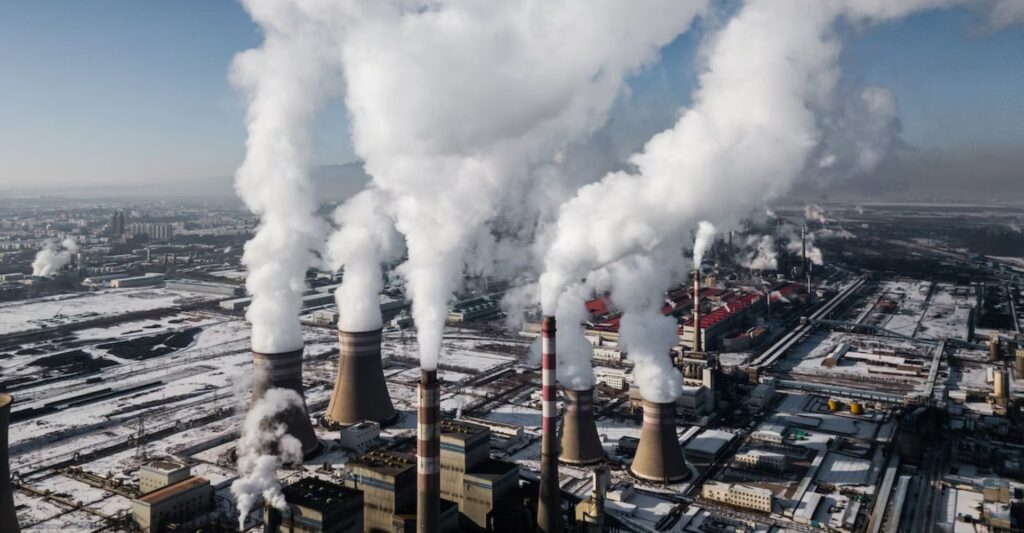Commission’s Plan for Sustainable Carbon Utilization by 2050

The European Union is committed to reaching ‘net zero’ CO2 emissions by 2050. While the major part of this effort will come from reducing current emissions levels in the coming years, we will also need technologies that can capture CO2 or remove it directly from the atmosphere and then store or utilise it. These technologies will focus on sectors where emissions are particularly difficult or costly to reduce, such as the process emissions in cement or waste-to-energy for example. The Commission has therefore adopted today an Industrial Carbon Management Communication, which provides details on how these technologies could contribute to reducing emissions by 90% by 2040 and reaching climate neutrality by 2050.
In the Net-Zero Industry Act, the Commission has proposed that the EU develops at least 50 million tonnes per year of CO2storage capacity by 2030. Based on the impact assessment on the EU recommended climate target for 2040, this figure will need to grow to around 280 million tonnes by 2040. The Communication on Industrial Carbon Management sets out a comprehensive policy approach to deliver on these targets.
A European approach to industrial carbon management
This Communication identifies a set of actions to be taken at EU and national level to enable the deployment of these technologies and the necessary infrastructure to establish a single market for CO2 in Europe in the decades ahead. The Commission will startpreparatory work on a possible future CO2 transport and storage regulatory package, which would consider issues such as market and cost structure, third-party access, CO2 quality standards or investment incentives for new infrastructure. The Commission’s Joint Research Centre (JRC) has published a report on the future CO2 transport network for Europe and related investment needs.
The Commission will also assess the volumes of CO2that need to be removed directly from the atmosphere (industrial carbon removals) to meet the EU’s emissions reduction ambitions for 2040 and 2050 and assess overall objectives and policy measures to achieve them. This will include an assessment of how removals and permanent storage could be accounted for under the EU Emissions Trading System (ETS).
To help scale up the market for capture and permanent storage of CO2 emissions, the Commission will establish guidance for project permitting processes and set up an atlas of potential storage sites. In cooperation with the Member States, the Commission will also develop an aggregation tool for matching CO2 suppliers with transport and storage operators and CO2 off-takers. The Commission aims to establish a clear carbon accounting framework for utilisation of captured CO2 as a resource, which would reflect the climate benefits of using CO2 as a resource in industrial processes. This will help boost the uptake of sustainable carbon in industrial sectors.
Establishing an enabling business environment for a CO2 value chain in the EU
Related Article: Ørsted’s Carbon Capture Initiative to Warm 16,000 Households in Denmark
To make industrial carbon management projects happen on the ground, the Commission is setting out today a series of horizontal actions which could create a more attractive environment for investments.
- Investment and funding: The EU and Member States should further promote industrial carbon management projects under EU energy infrastructure programmes and could consider Important Projects of Common European Interest (IPCEIs). The Commission will assess whether certain CO2 capture projects can already be supported with market-based funding mechanisms such as competitive bidding auctions-as-a-service under the Innovation Fund.
- Research, innovation and public awareness: The Commission will consider boosting funding for research and innovation on industrial carbon management projects through existing instruments, notably Horizon Europe and the Innovation Fund. The Commission will also support the establishment of a knowledge-sharing platform for carbon capture, use and storage (CCUS) projects. Working closely with the Member States, the Commission will raise public awareness on these technologies, including by highlighting their benefits and discussing potential rewards for local communities.
- International cooperation: The Commission will accelerate work with international partners on industrial carbon management, notably on the harmonisation of reporting and accounting of carbon management activities and ensure that international carbon pricing frameworks take into account removals to address emissions in hard-to-abate sectors.












